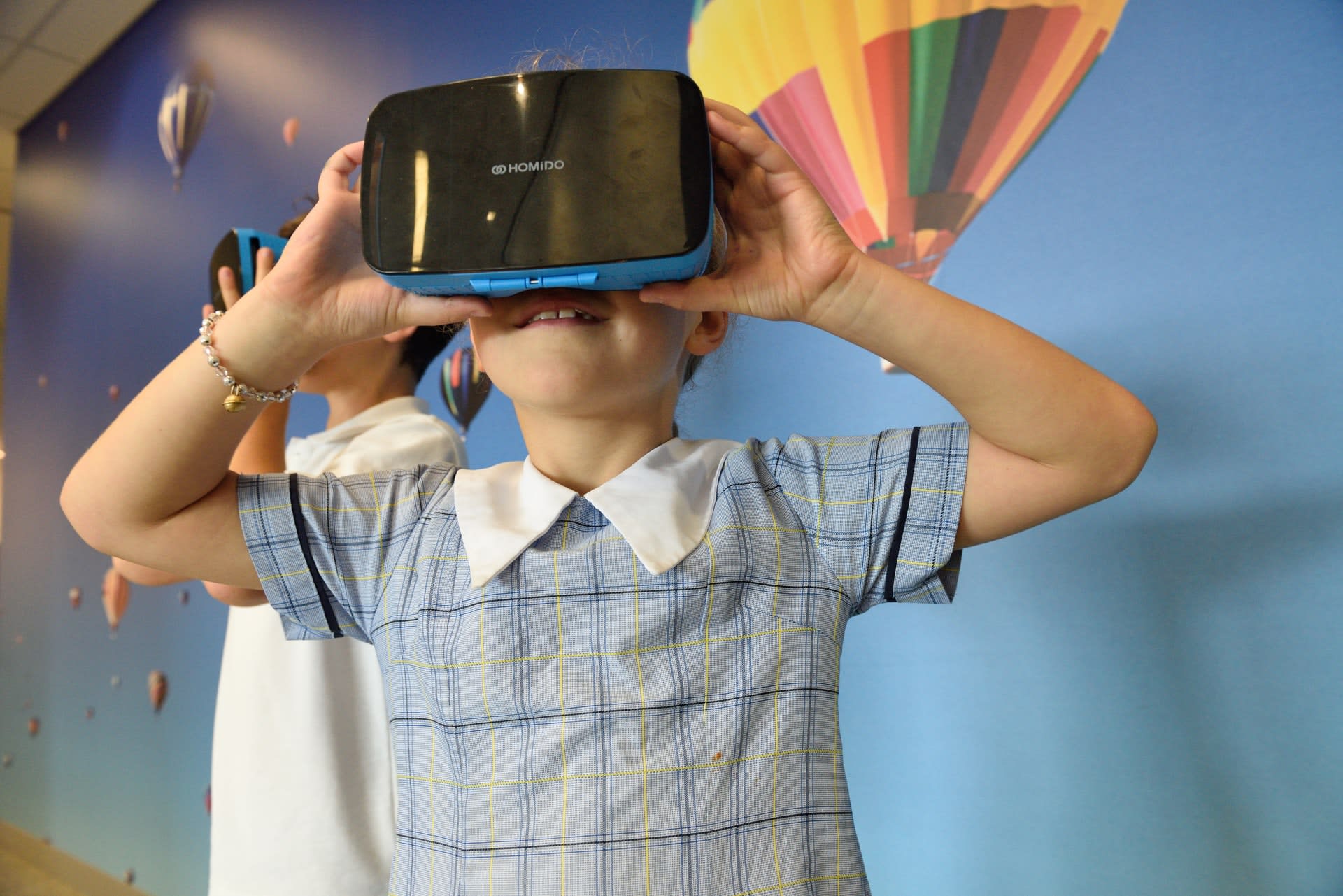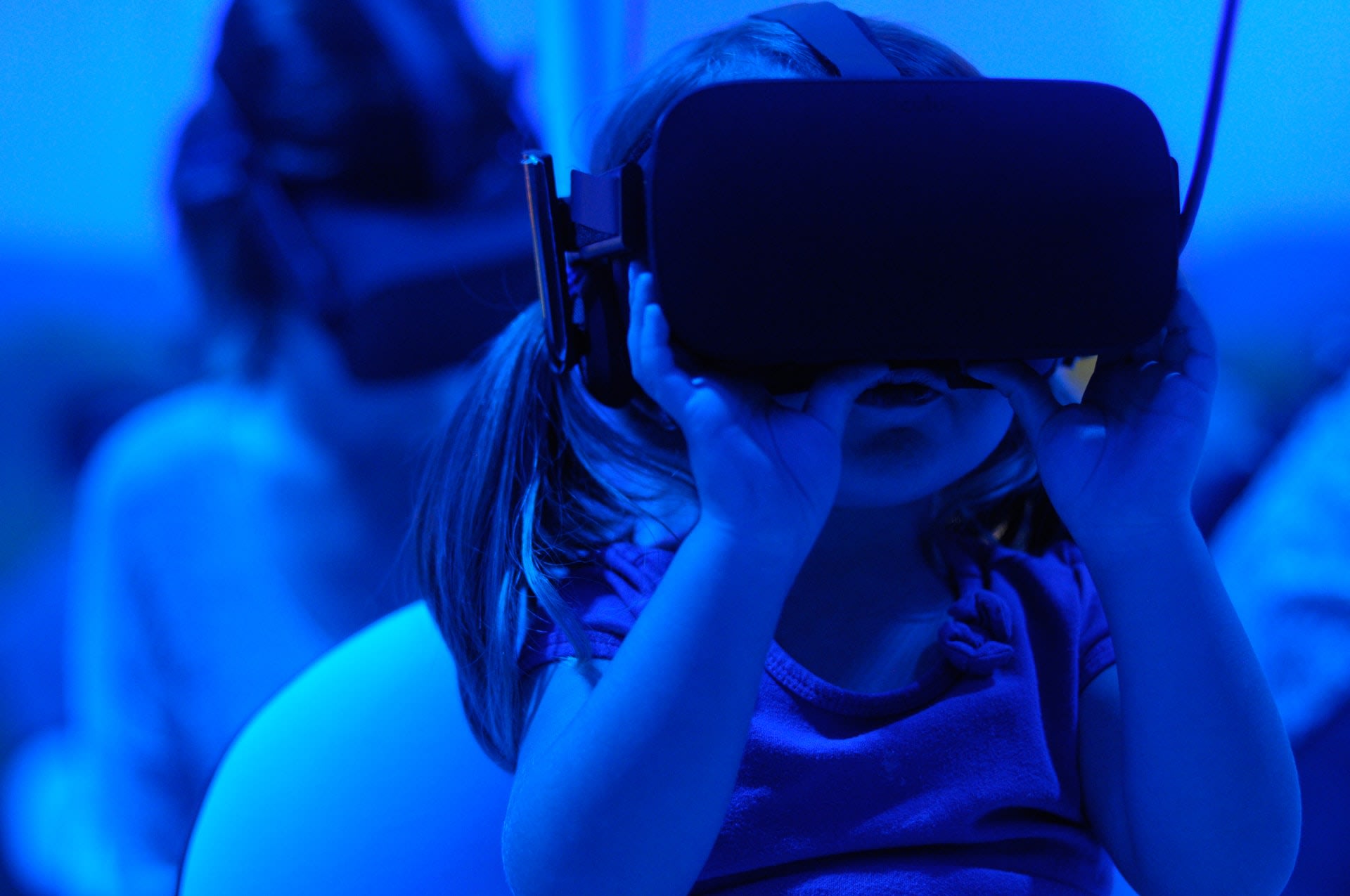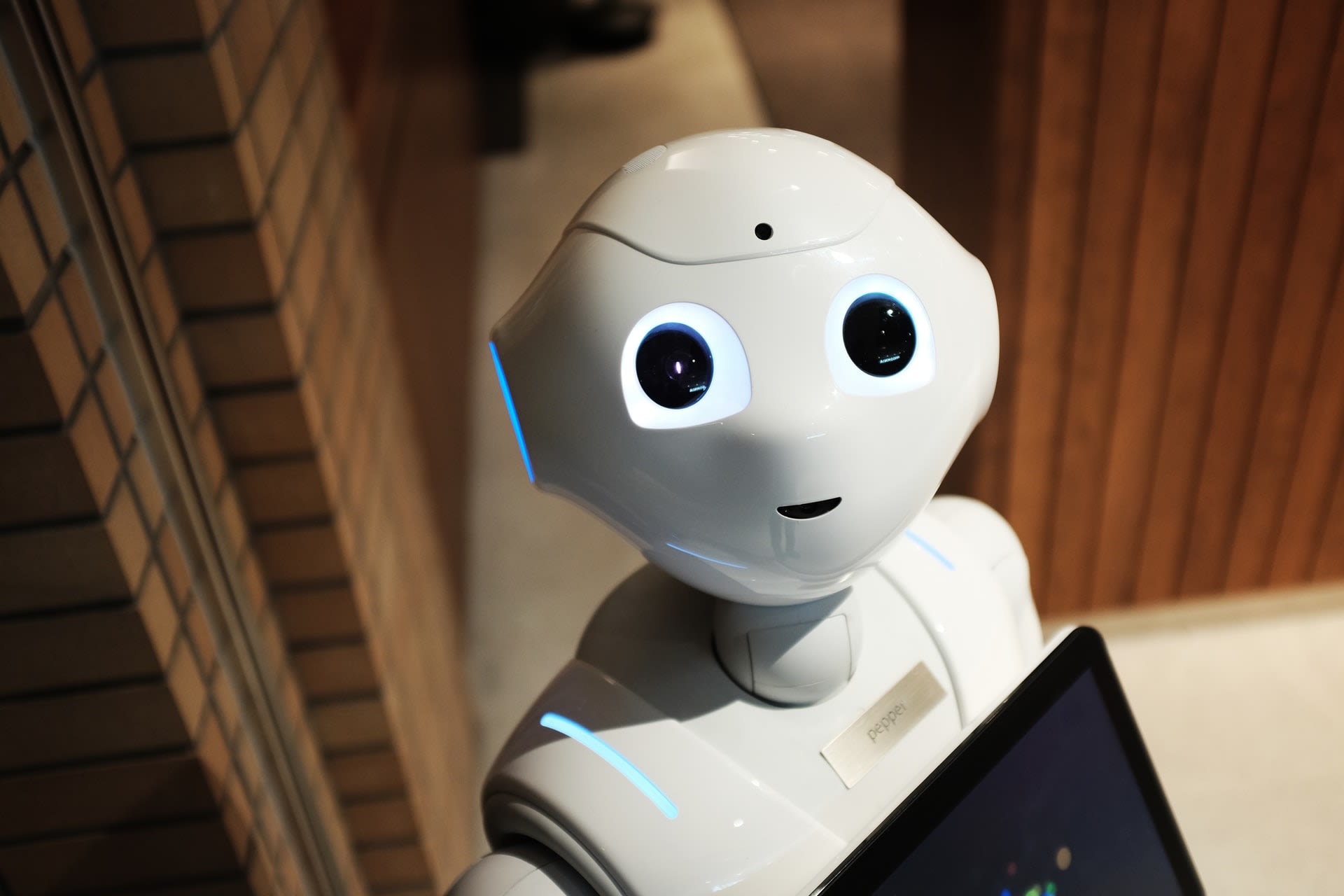5 New Education Technologies Shaping the Future
"Technology is nothing. What's important is that you have faith in the people that use it, that they're basically good and smart, and if you give them tools, they'll do wonderful things with them." Those are words from the great Steve Jobs, a man who knew a few things about the revolutionary potential of digital technologies. Today, those technologies are fulfilling many of Jobs' earliest visions and creating new possibilities even he could never have imagined. This is happening in almost every sphere of contemporary life, including the one that empowers us the most: education. With that and the COVID-related disruption and opportunities in teaching in mind, here are five new education technologies shaping the future.
- Education

Virtual and augmented reality
Imagine if an aspiring neurosurgeon could go on a guided tour of the neural networks that make up a human brain? Or, how about a trip to Mars to inspire the next generation of space explorers? If we could travel into the future and see the devastating effects of climate change with our own eyes, wouldn't that inspire all of us to do more today? For a long time, such ideas belonged to science fiction and Hollywood blockbusters. However, thanks to rapid developments in virtual reality and augmented reality technology, students could soon be exploring the entire universe without ever leaving the classroom.
Companies like Edify are well on their way to making this vision a reality. Created by a multidisciplinary team from the University of Glasgow, Edify is an immersive, accessible, and expansive augmented reality learning platform available anywhere in the world. It creates bespoke 3D learning environments, including virtual labs where students can carry out experiments using a VR headset and hand controllers.
French company XXII has done something very similar. Its Virtual Augmented Laboratory lets schoolchildren perform complicated chemistry experiments in a virtual world augmented by 3D-printed tools and smart assistants powered by artificial intelligence.

Adaptive learning
Adaptive learning has the potential to truly democratize education, ensuring every student gets the chance to fulfill their maximum potential. Adaptive learning has played a major role in how digital technology has changed society in the area of education, as it creates tailor-made learning plans that match a student’s learning style, ability level, and educational needs. In other words, adaptive learning enables students to learn in a way that suits them best. This has long been a goal for educators across the world, and they will soon have the technology to make it happen. Adaptive learning is currently one of the fastest-growing educational tools, and experts are predicting mass adoption of it soon.
Generally speaking, adaptive learning is split into two categories: a more standardized rule-based approach, and the smart recommendation-based system that harnesses machine learning and AI. The rule-based system has several pre-programmed pathways through a set syllabus. It will then direct the student along the appropriate channel according to how they perform on a series of tests and assessments. Alternatively, the recommendation system creates ever-evolving learning programs tailor-made for each student. Using complex algorithms, it can recommend assignments, reading lists, and exercises to fill in knowledge gaps or develop your ideas even further.
It's still early days for adaptive learning, but this innovative new technology is already yielding some impressive results. Cerego's adaptive learning platform helped NYU College of Dentistry board students achieve 100% Pass Rate. Bryan University, a private research university in Arizona, began using an adaptive learning platform last year. Since then, the number of assignments submitted on time has risen from 76% to 87%, while average assignment grades jumped by more than 10%.
Robotics
The world's first robot teacher is already working at The Philipps University of Marburg in Germany. His name is Yuki, and he's currently assisting his creator, professor Jurgen Handke, to deliver linguistics lectures and seminars. Yuki can also help administer tests, pull up useful learning resources, and give constructive feedback to students.
Yuki is a little way off from operating autonomously. However, as AI and robotics continue to improve at an exponential rate, Yuki could soon take responsibility for more complex tasks, and even deliver lectures on his own! Alternatively, Yuki could perform important but time-consuming administration tasks, freeing up his human counterparts to spend more time dedicated to deep research or mentoring students. This could then inspire more universities to hire their own robot teachers. Thinking about these smart machines gliding around the lecture hall might sound fanciful. However, Japan already has the world's first robot-staffed hotel and restaurant. Japan’s leading scientists are also in the late stages of testing robots to work in hospitals, care homes, and metro stations.

5G
5G will soon be the standard for broadband cellular networks. It promises faster download speeds, low latency, and greater connectivity for billions of devices around the world, especially regarding next-generation technologies like AI and the Internet of Things. 5G means you'll never struggle for service in crowded areas again, or lose connection during long train journeys. More importantly, 5G will provide millions of people with access to another rapidly expanding education sector; online learning.
5G has the potential to fire the online learning revolution into overdrive, becoming a major factor in driving economic growth and opportunity in developing countries. For example, a recent study by the UN found over 260 million children globally have no access to full-time education. Today’s 5G's powerful new mobile data capabilities can transmit virtual classes and seminars from anywhere in the world, even efficiently while students are in transit or to remote areas. All the children need is some kind of mobile device. Charities like the Turing Trust are lending a helping hand. The organization refurbishes computers and other mobile devices before sending them to schools in developing nations across Africa and Asia. Earlier this year, students at a secondary school in Mzuzu, Malawi, began taking their first computer science classes on PCs donated by the Turing Trust.
Biometrics
Biometrics are physical or behavioral characteristics that can digitally identify a person. They include obvious defining features, like fingerprints and facial patterns, and more idiosyncratic behaviors, such as speech and even typing patterns. Biometrics are used to grant authorized people access to buildings or confidential systems. It's also an effective surveillance technique for identifying wanted and potential suspects. As you can imagine, biometrics is a controversial issue -- and people must always strive for a balance between useful innovation and protecting individual freedoms.
When done effectively, biometrics can provide us with an enormous amount of complex data on our professional or educational performance. Some schools have already integrated eye-tracking software to see how students concentrate and absorb information. Again, this might sound slightly sinister, and cynics are often quick to use terms like Orwellian. However, this data can help teachers design more effective lesson plans and learning resources, resulting in higher grades for each student. Biometrics can track student attendance and punctuality, helping build positive habits that will help them later in life. It can also streamline library lending services, prevent cheating in exams, as well as keep students and teachers safe by stopping unauthorized persons from entering school grounds.
We've come a long way since the days of the blackboard and chalk! Instead, today's classrooms are packed with exciting new technologies that are revolutionizing education and reshaping the future into a fairer place for all of us.
Find your perfect program
Use our search to find and compare programs from universities all over the world!
Education Technology
Ashley Murphy
Author
After graduating with a degree in English literature and creative writing, Ashley worked as a bartender, insurance broker, and teacher. He became a full-time freelance writer in 2016. He lives and writes in Manchester, England.
Find a program in these categories


